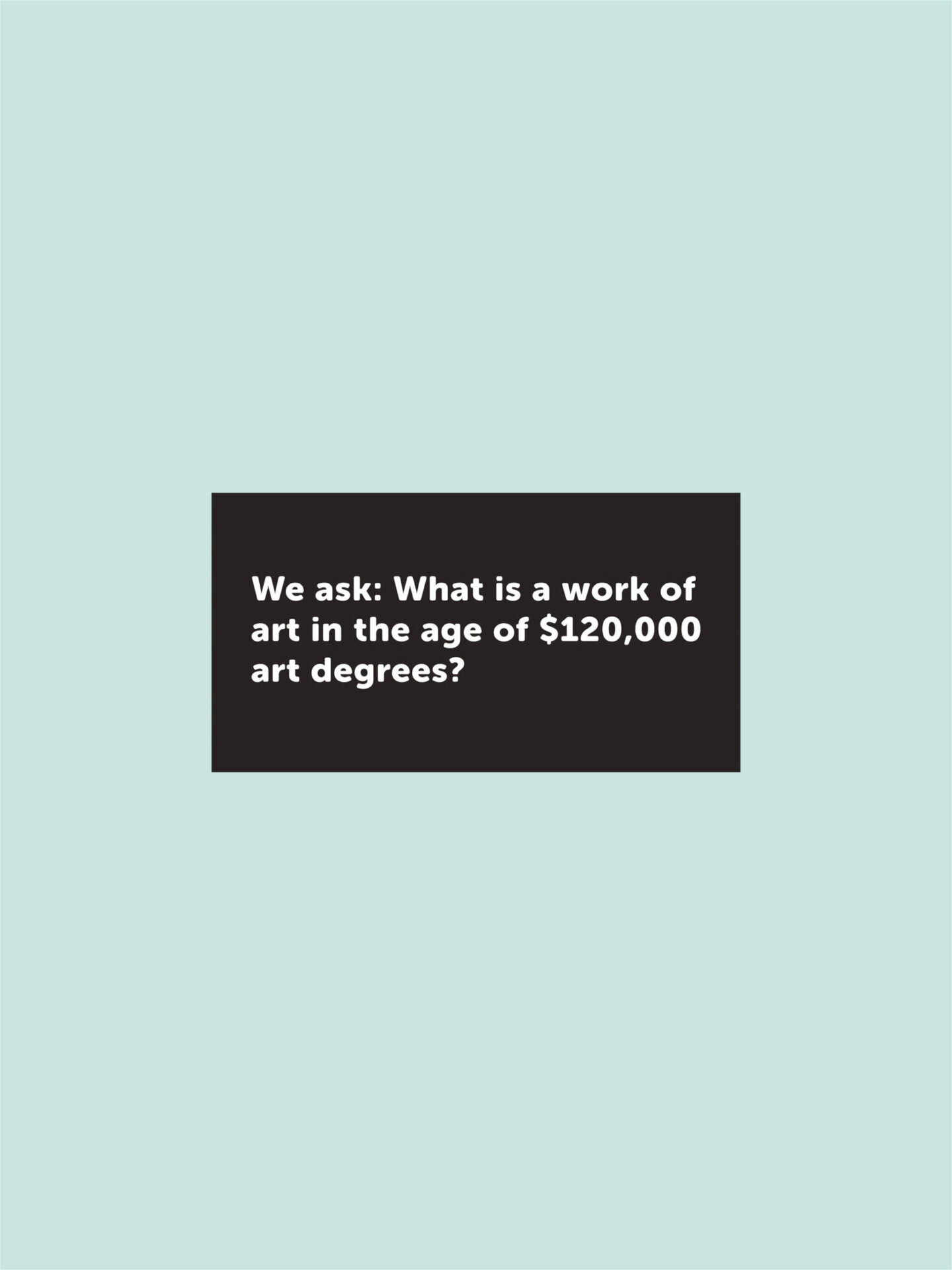
Photo : courtesy of the artist
Neither Artist Nor Worker
In response to economic insecurity, there is of course a history of government and philanthropic support for culture. After the Depression and the Second World War, Western governments began to integrate the arts into the welfare state and to develop cultural policies based on the belief that culture should not be sacrificed to free market principles. Since the 1990s, however, the idea of protecting culture from market forces has been almost completely reversed, with creative industry policies now leading the way in the development of new markets.1 1 - See for example the speech by Mélanie Joly, Minister of Canadian Heritage, “Creative Industries: Exploiting the Potential of New Markets,” at the Montreal Council on Foreign Relations, April 17, 2017, <corim.qc.ca/en/event/762>, and <bit.ly/2IhLyys>. On the subject of creative industries policy, see Marc James Léger, “The Non-Productive Role of the Artist: The Creative Industries in Canada,” Third Text 24, no. 5 (September 2010): 557 — 70.
